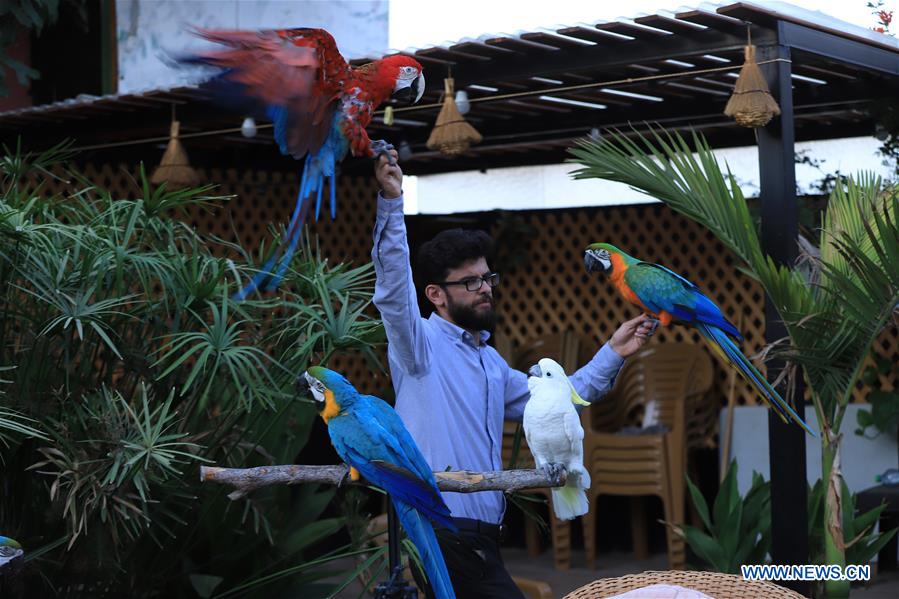
Ramallah: Visitors to the house of Nashat Tmaizi, an aviculturist from the southern West Bank city of Hebron, are usually amazed to see his large and unique collection of brightly coloured parrots.
With a passion for pet parrots, Tmaizi, 32, has been dedicated to acquiring, taking care of, and making a profit from various parrot species.
Every morning, Tmaizi prepares the feed and seed mix for the parrots while observing the anti-coronavirus measures by wearing a face mask. With parrots perched on his hands and shoulders, he told Xinhua that he has been keeping parrots for 15 years.
Highlighting the fact that parrots are not low-maintenance pets, he said that rearing parrots requires a large amount of capital. "I started with purchasing a limited number of parrots, raised the baby birds and sold them as they grew up to the local pet market in order to buy new species. That's how I became a parrot aviculturist."
Enjoying the sound of the chirping parrots surrounding him, Tmaizi said that he has some 40 parrot species, including Macaws, the African Grey Parrot, the Cockatoos and the Budgerigar, with the number of parrots in his possession ranging from 80 to 100.
He said that parrots require a considerable amount of attention, and the food they eat includes fruits, vegetables, chicken, hard-boiled eggs, nuts and various grain crops. They also require environmental enrichment through the provision of T-stands, which would add to the aviculturist's financial burden.
Tmaizi, a well-off father of one girl, said that he pays attention to the daily needs of his pet birds as much as he does to his small family, and he has to pay hundreds of US dollars in monthly expenses to buy nuts, seeds and fruits for his parrots. Nevertheless, he said he is happy with what he is doing as an amateur parrot aviculturist.
Tmaizi acquired his unique collection of birds, which are rare to find in the West Bank, through purchasing them from Israeli dealers at high prices.
Although he has been in possession of various species of parrots, he pledged not to squander them regardless of the high prices. He will only sell the baby parrots as they grow up to expand his parrot farm and purchase new species.
The Palestinian aviculturist said that he had received calls from prospective clients in the West Bank as well as in Israel, stressing that he takes into consideration not to sell parrots during the hatching season.
Commenting on the impact of the coronavirus pandemic on his business, Tmaizi said that he has not received prospective clients in his house since March, and the clients may have shifted their priorities away from purchasing pet birds, amid the economic impact of the pandemic such as declining income and growing unemployment rates.
Enjoying the support and encouragement from his family, Tmaizi said he looks forward to purchasing a piece of land to set up a large farm housing hundreds of parrot species, so that it would turn into a must-visit destination for the people in West Bank.